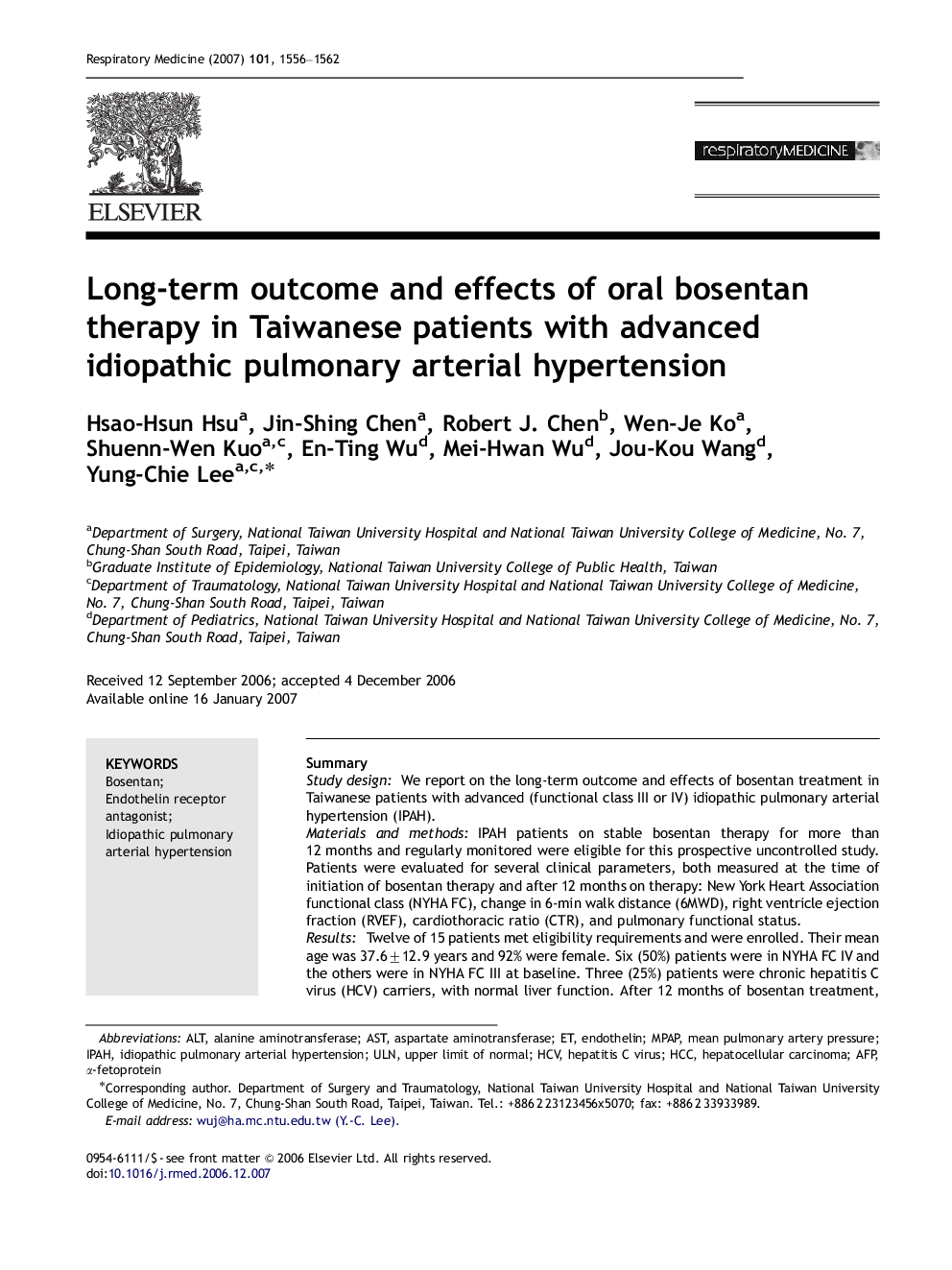| Article ID | Journal | Published Year | Pages | File Type |
|---|---|---|---|---|
| 4211714 | Respiratory Medicine | 2007 | 7 Pages |
SummaryStudy designWe report on the long-term outcome and effects of bosentan treatment in Taiwanese patients with advanced (functional class III or IV) idiopathic pulmonary arterial hypertension (IPAH).Materials and methodsIPAH patients on stable bosentan therapy for more than 12 months and regularly monitored were eligible for this prospective uncontrolled study. Patients were evaluated for several clinical parameters, both measured at the time of initiation of bosentan therapy and after 12 months on therapy: New York Heart Association functional class (NYHA FC), change in 6-min walk distance (6MWD), right ventricle ejection fraction (RVEF), cardiothoracic ratio (CTR), and pulmonary functional status.ResultsTwelve of 15 patients met eligibility requirements and were enrolled. Their mean age was 37.6±12.9 years and 92% were female. Six (50%) patients were in NYHA FC IV and the others were in NYHA FC III at baseline. Three (25%) patients were chronic hepatitis C virus (HCV) carriers, with normal liver function. After 12 months of bosentan treatment, 6-MWD, RVEF, and pulmonary function all increased significantly. CTR and NYHA FC both decreased significantly. Oral bosentan was well tolerated and there was no episode of liver dysfunction that required adjustment of the bosentan dosage or discontinuance of therapy.ConclusionLong-term treatment with oral bosentan appears to have beneficial effects on functional status, exercise capacity, right heart function, and pulmonary function in Taiwanese patients with advanced IPAH, regardless of whether or not they presented with chronic HCV infection.
